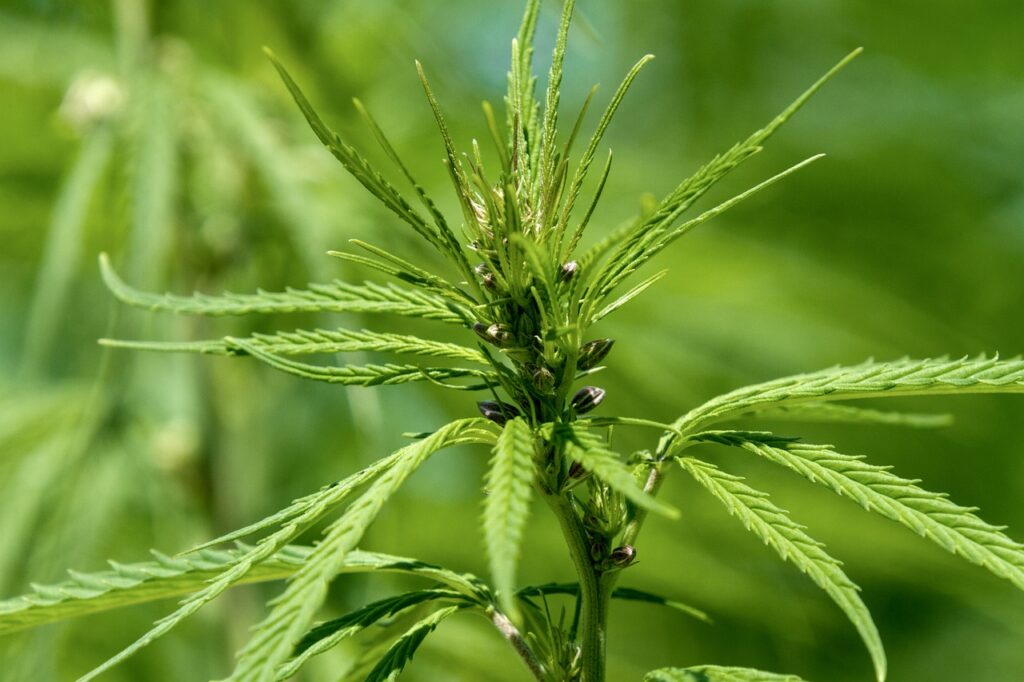In recent years, the cannabis industry has seen a surge in interest surrounding various cannabinoids, each offering unique benefits. Among these, THCA (tetrahydrocannabinolic acid) has emerged as a promising compound, often overshadowed by its more famous counterpart, THC (tetrahydrocannabinol). This article explores the advantages of THCA flower from https://indacloud.co/thca-flower, highlighting its potential as a natural alternative to THC.
Understanding THCA and THC
THCA is a non-psychoactive cannabinoid found in raw and live cannabis plants. Unlike THC, which is known for its psychoactive effects, THCA does not produce a “high.” This distinction is crucial for individuals seeking the therapeutic benefits of cannabis without the mind-altering effects.
THCA converts to THC through a process called decarboxylation, which occurs when cannabis is heated. This transformation is why smoking or vaping cannabis results in psychoactive effects. However, when consumed in its raw form, THCA remains non-psychoactive, offering a different set of benefits.
Health Benefits of THCA
Research into THCA is still in its early stages, but preliminary studies and anecdotal evidence suggest several potential health benefits:
- Anti-inflammatory Properties: THCA has shown promise in reducing inflammation, making it a potential option for individuals with conditions like arthritis and lupus.
- Neuroprotective Effects: Some studies indicate that THCA may help protect brain cells, offering potential benefits for neurodegenerative diseases such as Alzheimer’s and Parkinson’s.
- Anti-emetic Properties: THCA may help reduce nausea and vomiting, which can be beneficial for patients undergoing chemotherapy or those with chronic gastrointestinal issues.
- Appetite Stimulation: Like THC, THCA may help stimulate appetite, which can be advantageous for individuals dealing with appetite loss due to medical conditions or treatments.
THCA vs. THC: A Comparative Analysis
While both THCA and THC originate from the same plant, their effects and applications differ significantly. Understanding these differences can help consumers make informed choices about their cannabis use.
Psychoactive Effects
THC is well-known for its psychoactive properties, which can be desirable for recreational users but may not be suitable for everyone. THCA, on the other hand, offers therapeutic benefits without altering mental state, making it an attractive option for those seeking relief without impairment.
Legal Considerations
The legal status of cannabis varies widely across regions, with many areas imposing strict regulations on THC content. THCA, being non-psychoactive, often falls outside these restrictions, providing a legal alternative in places where THC is prohibited.
Consumption Methods
THCA can be consumed in various ways, each offering different benefits:
- Raw Consumption: Juicing raw cannabis leaves or adding them to smoothies preserves THCA in its natural form.
- Tinctures and Oils: These products allow for precise dosing and can be easily incorporated into daily routines.
- Topicals: THCA-infused creams and balms can be applied directly to the skin for localized relief.
Case Studies and Research
Several studies and anecdotal reports highlight the potential of THCA as a therapeutic agent. For instance, a study published in the British Journal of Pharmacology found that THCA exhibited anti-inflammatory properties in animal models. Another study in the Journal of Neuroimmune Pharmacology suggested that THCA might have neuroprotective effects, offering hope for patients with neurodegenerative conditions.
In addition to scientific research, numerous personal accounts from patients and healthcare providers underscore the benefits of THCA. Many individuals report significant improvements in symptoms such as pain, inflammation, and nausea after incorporating THCA into their treatment regimens.
Challenges and Considerations
Despite its potential, THCA is not without challenges. The lack of extensive research means that much of the evidence is anecdotal, and more studies are needed to fully understand its effects and applications. Additionally, the cannabis industry faces regulatory hurdles that can impact the availability and quality of THCA products.
Consumers should exercise caution when purchasing THCA products, ensuring they come from reputable sources. Lab testing and transparency in labeling are critical factors in determining product quality and safety.
Conclusion
THCA flower presents a promising natural alternative to THC, offering a range of potential health benefits without the psychoactive effects. As research continues to evolve, THCA may become an increasingly popular choice for individuals seeking therapeutic relief from various conditions. By understanding the differences between THCA and THC, consumers can make informed decisions about their cannabis use, exploring the potential of this unique cannabinoid.
